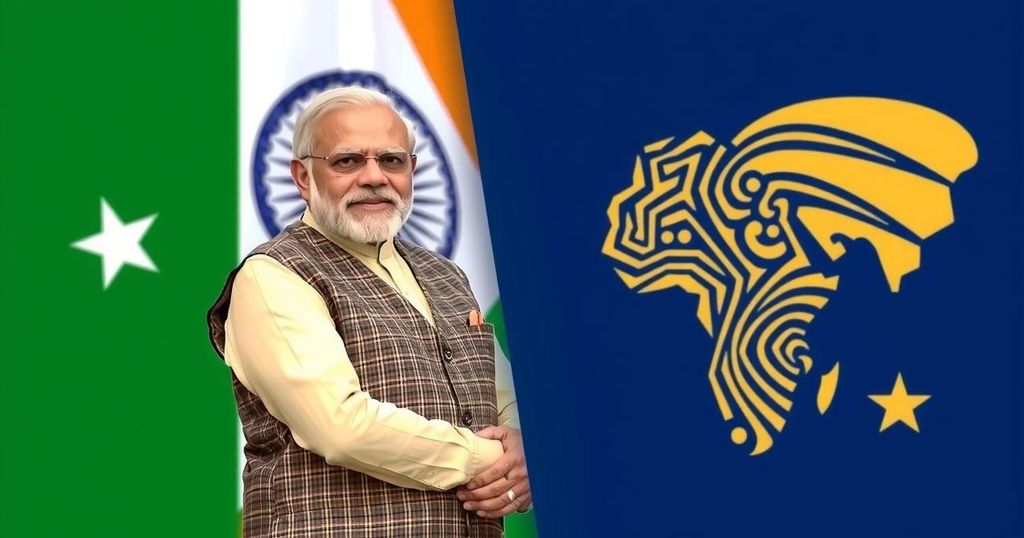The visit of Indian Prime Minister Narendra Modi to Nigeria, the first in 17 years, seeks to strengthen security and investment ties. India and Nigeria have maintained a strategic partnership since 2007, with significant historical connections through education and healthcare. India’s investments in Nigeria continue to grow, supporting development programs and educational exchanges.
The visit of Indian Prime Minister Narendra Modi to Nigeria signifies a pivotal moment in the diplomatic ties between India and West Africa, occurring for the first time in 17 years. This visit builds upon the previous partnership established in October 2007 during the visit of Manmohan Singh, where both nations elevated their relationship to a ‘Strategic Partnership’. Presently, India and Nigeria are crucial players in the international arena, fostering connections that emphasize mutual respect and collaboration. With populations exceeding 1.4 billion in India and over 220 million in Nigeria, both nations face similar challenges and opportunities as leading democracies. Their rich pluralistic societies present a shared understanding necessary for addressing global issues. Moreover, India has maintained diplomatic relations with Nigeria for over 60 years, opening its Diplomatic House in Lagos in 1958, two years prior to Nigeria’s independence. Historically, Indian educators and healthcare professionals have significantly contributed to Nigeria’s development from the 1960s to the 1980s, establishing long-lasting connections within the community. The presence of approximately 60,000 Indian expatriates in Nigeria highlights the robust ties that exist between the two countries, reinforcing the importance of their partnership. Economic engagement is also vital, with Indian companies investing about $27 billion across various sectors in Nigeria, making them the second-largest employers after the federal government. Additionally, India’s development assistance includes concessional loans totaling $100 million and capacity-building training programs. Furthermore, India has supported Nigeria through the Indian Technical and Economic Cooperation (ITEC) programme, offering substantial training slots for Nigerian officials, which have benefitted approximately 27,500 individuals since the 1970s. Scholarships and educational opportunities provided under various programs only strengthen this bilateral cooperation. Overall, Prime Minister Modi’s visit to Nigeria illustrates a continuing commitment to enhancing bilateral relations and reflects both nations’ eagerness to collaborate on security and economic growth.
India and Nigeria have nurtured a rich diplomatic relationship since India opened its Diplomatic House in Lagos in 1958. Over the years, the cooperation between these two nations has grown beyond political ties to encompass economic, educational, and cultural exchanges. The significance of this visit lies in the joint endeavors to improve security, investment, and developmental assistance within the context of a globalizing world, particularly focused on strengthening bilateral trade and addressing shared challenges in security and economic growth. With both countries hosting large, diverse populations, the natural partnership reflects their roles as democratic leaders in their respective regions. The training and educational programs offered by India, along with its investment initiatives, underscore India’s strategic interests in fostering stability and progress in Nigeria.
In conclusion, Prime Minister Narendra Modi’s visit to Nigeria marks a historic renewal of ties between India and West Africa after a prolonged hiatus. This reconnection aims to bolster security and economic collaborations, while continuing a legacy of mutual assistance that dates back to the 20th century. As both nations navigate a complex international landscape, their partnership holds immense potential for addressing contemporary challenges and fostering shared growth.
Original Source: m.economictimes.com






